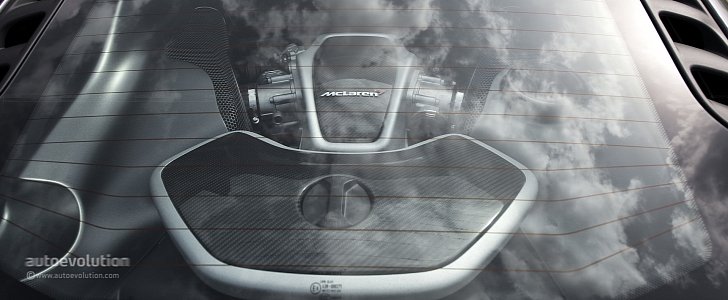With the 720S’ launch just around the corner and a hyper-GT with hybrid power coming in 2019, McLaren is a bit on a roll. To stay on top of the game, the automaker joined hands with BMW in a strategic partnership “to design and develop technology for the next generation of powertrains.”
What does that choice of words mean, though? According to the six-year Track22 business plan, McLaren intends to hybridize at least 50 percent of its cars by 2022. Better still, McLaren engineers are currently working on a fully-electric powertrain that could be employed by a next-gen hypercar.
Since the plan was announced in March 2016 until the end of 2022, the British manufacturer intends to introduce 15 all-new or derivative models within the existing three-tier lineup (Sport Series, Super Series, Ultimate Series). The biggest question is, what part will BMW have in this affair?
Unfortunately, only McLaren and BMW know what’s what. What we know, however, is that Ricardo will continue to design and produce McLaren’s engines. BMW could chip in with its hybrid, plug-in hybrid, and EV technologies, but as stated beforehand, nothing is certain right now.
This hunch is furthered by the following quote from Mike Flewitt: “We will continue to independently design and build our own engines, and the benefits of this project will help us accelerate the development of our next generation of powertrain, as confirmed in our recently-announced Track22 business plan.” The said project consists of six partners, Ricardo and BMW being the only ones working directly with McLaren Automotive's engineers.
Grainger and Worrall are tasked with lightweight casting technology, whereas Lentus Composites will gladly offer composite structures know-how. The final piece of the puzzle is the University of Bath, which is specialized in research and development capabilities in ICE systems efficiency. Including a £14 million contribution by the UK government, the cost of the project is £28 million.
Since the plan was announced in March 2016 until the end of 2022, the British manufacturer intends to introduce 15 all-new or derivative models within the existing three-tier lineup (Sport Series, Super Series, Ultimate Series). The biggest question is, what part will BMW have in this affair?
Unfortunately, only McLaren and BMW know what’s what. What we know, however, is that Ricardo will continue to design and produce McLaren’s engines. BMW could chip in with its hybrid, plug-in hybrid, and EV technologies, but as stated beforehand, nothing is certain right now.
This hunch is furthered by the following quote from Mike Flewitt: “We will continue to independently design and build our own engines, and the benefits of this project will help us accelerate the development of our next generation of powertrain, as confirmed in our recently-announced Track22 business plan.” The said project consists of six partners, Ricardo and BMW being the only ones working directly with McLaren Automotive's engineers.
Grainger and Worrall are tasked with lightweight casting technology, whereas Lentus Composites will gladly offer composite structures know-how. The final piece of the puzzle is the University of Bath, which is specialized in research and development capabilities in ICE systems efficiency. Including a £14 million contribution by the UK government, the cost of the project is £28 million.




